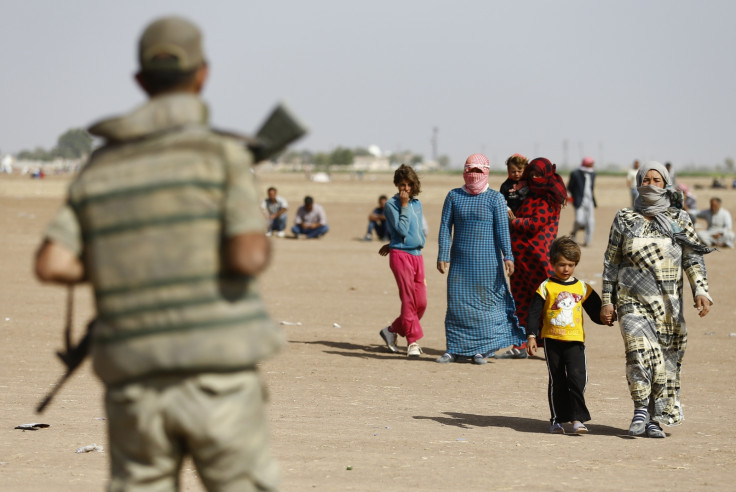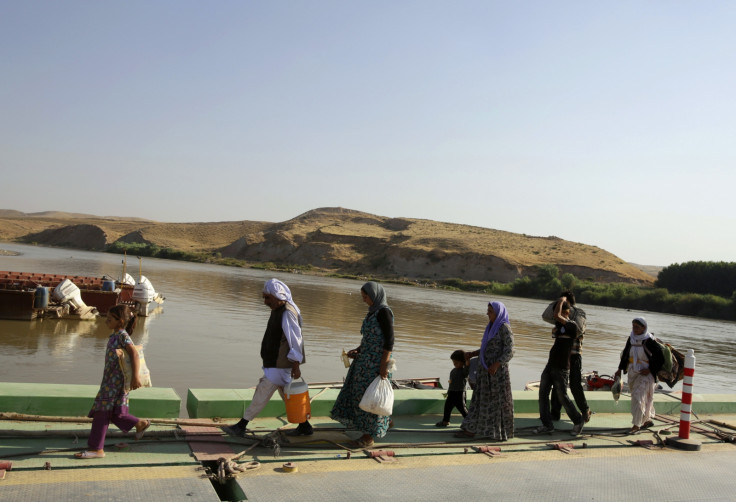Isis: America-led Air Assault Fails to Halt Terror Group's Advance on Kurdish City of Kobani

Isis (now known as the Islamic State) has continued its advance to within 8km (5 miles) of the Kurdish city of Kobani - which lies on the Syrian-Turkish border - despite US-led coalition air strikes against the terror group.
The Sunni Islamist militant group has reinforced its fighters who are battling Kurdish forces defending the city against capture.
Ocalan Iso, deputy leader of the Kurdish forces defending the city, said more Islamic State militants and tanks arrived to join the offensive since the air strike campaign began earlier this week.
"The number of their fighters has increased, the number of their tanks has increased since the bombardment of Raqqa," Iso told Reuters.
Syrian Kurds in the city have warned they face a "second Sinjar" - referring to the northern Iraqi town where thousands of Yazidis were forced to flee by IS - if the international community does not intervene to protect them.
"If the international community does not intervene, we will have a second Shingal (Sinjar) as Isis advances further," said Adham Basho of the Syrian Kurdish Azadi Party.
"All the people from the Kobani areas have fled to the Turkish border and they have a difficult time because they are stuck there as Turkey has closed [its borders]," Basho added.

The city, also known as Ayn al-Arab, has seen more than 130,000 Syrian Kurds flee the IS offensive, with many attempting to cross the border into Turkey.
Hundreds of Kurds from the YPG (Syrian-Kurdish militia) have crossed the Syrian-Turkish border to fight the terror group and protect the city, according to the YPG spokesman Redur Xelil.
The strikes in Syria by the US-led coalition have killed at least 70 IS militants, 50 al-Qaida-linked fighters and eight civilians, according to activists.
IS, which is estimated to have over 30,000 fighters, has captured large swathes of territory across north-east Syria and northern Iraq, including the key Sunni towns and the cities of Mosul and Raqqa.
It proceeded to declare a "caliphate" that straddles the Iraqi-Syrian border and now represents a greater landmass than that of the United Kingdom.
The United States has conducted over 200 air strikes on the group's positions in Iraq since August 2014, while Saudi Arabia, the United Arab Emirates, Jordan, Bahrain and Qatar have joined or supported the strikes in Syria.
© Copyright IBTimes 2025. All rights reserved.






















